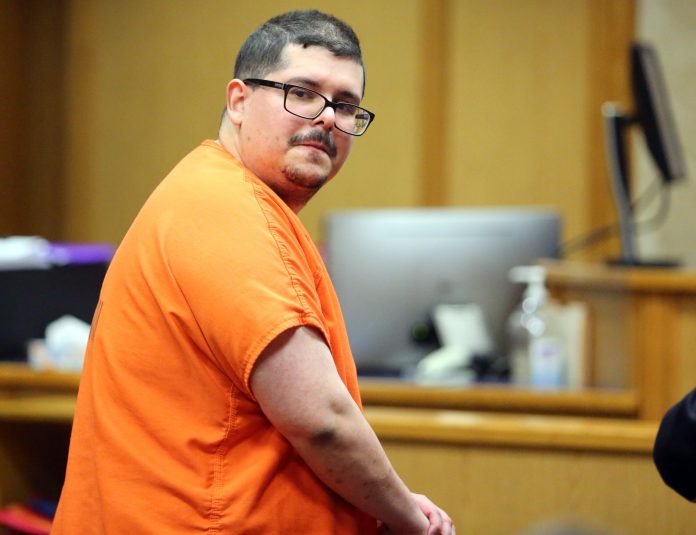
An appellate court on Thursday dismissed a 35-year-old man’s appeal in a “sudden passion” murder case because his appellate attorneys did not comply with deadlines to perfect an appeal for the conviction.
State District Judge Fernando Mancias sentenced Fabian Paredes to 20 years in prison for shooting and killing 27-year-old Joshua David Sanchez outside of the Hidalgo County Courthouse on Oct. 9, 2017, following a road rage incident between the men.
That sentence came Feb. 12, 2020, approximately one month before COVID-19 arrived in Hidalgo County and local authorities placed emergency orders in an effort to mitigate the spread of the virus.
The Texas Supreme Court also issued orders that allowed Texas courts to modify or suspend any and all deadlines in any civil or criminal case.
Paredes’ appellate attorneys, Austin Oxford and Billy J. Chapa, argued as recently as April 21 that those orders meant that the defendant’s June 3, 2020 appeal was timely despite not being filed within 90 days of the final judgment.
The latest motion notes that on Aug. 18, 2020, the 13th Court of Appeals granted Paredes’ motion for an extension of time under the emergency orders.
“However, on April 11, 2022, this Court concluded that it has improvidently granted Appellant’s motion. Appellant urges this Court to reconsider its decision to withdraw and strike its previous ruling,” the motion stated. “Appellant and Appellee have already submitted their briefs to this Court and were submitted on September 29, 2021. This Court found Appellant’s motion to have merit once.”
The appellate court, however, declined, noting that on April 11 the panel notified Paredes that he had 10 days to perfect the appeal, if possible, or it would be dismissed.
“Appellant did not respond to the Clerk’s directive or otherwise correct the defect,” the ruling stated.
In the order, the appellate court noted that the Texas Supreme Court’s emergency orders do not apply to appeal deadlines in civil matters.
“Several of our sister courts have concluded likewise in the criminal context in unpublished memorandum opinions,” the ruling stated.
In short, the appellate court did not find any rationale or rule of law that allows it to treat criminal appeals differently than civil appeals under the emergency orders.
“Accordingly, we conclude that the tolling deadlines in the supreme court’s emergency orders pertaining to the Covid-19 pandemic do not extend the time to file the notice of appeal in a criminal case,” the order stated.
Paredes is eligible for parole in 2029 and the Texas Department of Criminal Justice lists his projected release date as 2039.




